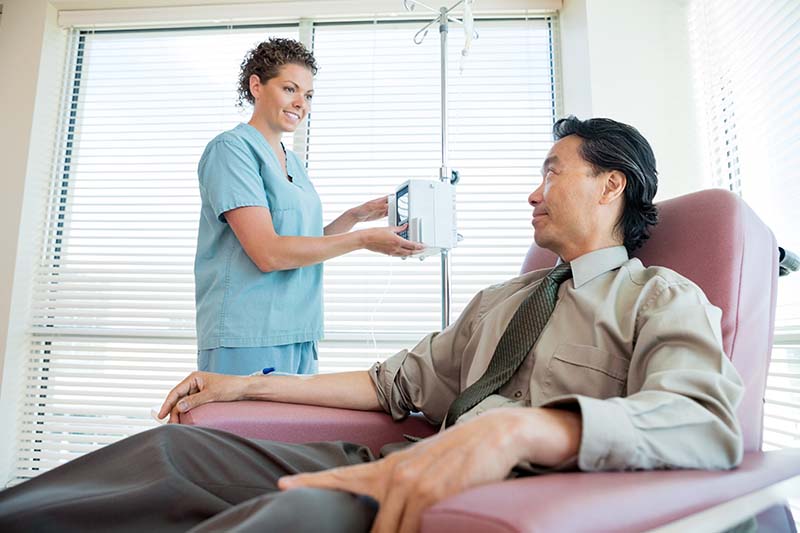Fatigue
This is a type of “tired” that you don’t typically feel from simply overdoing it. This is a type of exhaustion that may make you want to take naps. Try to incorporate more rest time as well as time for some exercise into your routine. While it may seem odd, some physical exertion can help reduce fatigue.
Nausea
If the chemotherapy you’ll receive is known to cause nausea you’ll likely be given anti-nausea medicine during your chemo infusion. You might also be given some to take home in pill form.
Consider changing your eating habits by eating smaller, more frequent meals, taking your time when you eat or avoiding sweet or greasy foods that upset your stomach.
